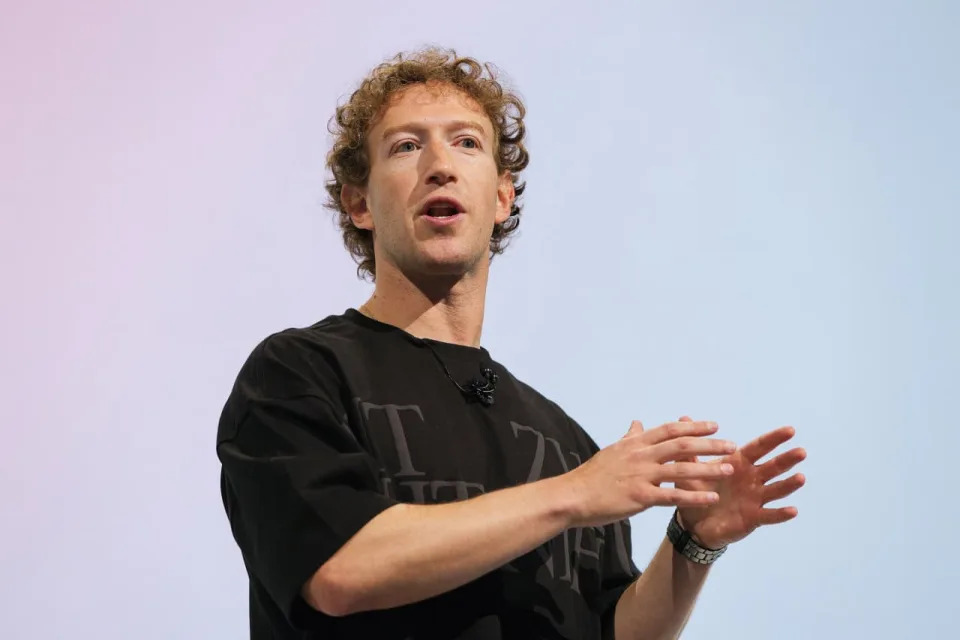January 17, 2025


Mark Zuckerberg may be taking a page from Elon Musk’s playbook. But the Facebook founder’s social-network empire stands little chance of suffering a similar fate to Twitter.
Investors seemed nervous it would at first. Shares of Meta Platforms slid nearly 6% in the week following Zuckerberg’s Jan. 7 announcement that he was ending the company’s internal fact-checking program and replacing it with a user-based system to flag problematic content.
“It’s time to get back to our roots around free expression and giving people voice on our platforms,” Zuckerberg said in a post on the company’s Threads service. He said Meta would continue to focus on “tackling illegal and high-severity violations,” but added that the new rules would require “much higher confidence” before the company removes content.
Facebook is going the way of Twitter, in other words. Zuckerberg made little effort to disguise that fact—even citing by name the “community notes” feature that replaced company-led moderation after Musk bought the microblogging platform and changed its name to X in 2022. But that turned out to be a costly move for the centibillionaire, as advertisers fled the platform fearing an onslaught of misinformation and unsavory content. Musk said a year later that the company was worth about $19 billion—less than half of what he paid for it.
Still, a similar outcome is unlikely at Facebook and Instagram. For one thing, both platforms are much larger and more vital to advertisers than Twitter ever was . Facebook alone had more than eight times Twitter’s daily active user base of 237.8 million in mid-2022 before Musk bought the company. The smaller Instagram was already generating more than $8 billion in ad revenue each quarter by that point, according to estimates by Visible Alpha. Twitter’s annual ad revenue never exceeded $5 billion by the time it was acquired.
Meta’s prowess has only grown since. The company now has nearly 3.3 billion daily users across its platforms, generating more than $152 billion in annual advertising revenue. That is a scale few advertisers can afford to ignore. “Overall, we don’t expect advertising budgets to change as a result of these changes,” Stifel analyst Mark Kelley wrote following Zuckerberg’s announcement. Advertising analyst Brian Wieser said “most marketers will probably continue to support Meta with their budgets much as they would have had this change not been made, at least so long as consumer usage and advertising performance remain intact.”
Of course, Zuckerberg’s latest pivot isn’t without some risk. An explosion of sketchy content on Facebook and Instagram could still spook some large, national brand advertisers who are careful about minding their image. That might do only limited damage, as smaller advertisers running direct-response campaigns make up a large portion of Meta’s ad base. Yet given Meta’s high stock price, even a small dip could prove costly.
Meta’s ad revenue has averaged 21% year-over-year growth over the last six quarters, which is more than double what rival Google has managed in that time. Investors have applauded this as Meta’s market value has more than quadrupled over the past two years. That is more than double the performance of Google-parent Alphabet and far ahead of most of its other megacap tech peers in that time. Investors could be disappointed by even a small deceleration in revenue growth.
But Zuckerberg has dealt with investor revolts before. The sheer scale of Meta’s advertising business and the company’s burgeoning position as an artificial-intelligence player provide some valuable leeway now. Facebook and Instagram will still generate billions of dollars in cash flow to fund the company’s AI investments even if a few advertisers balk at the recent changes.
Social media was always a messy business. Zuckerberg can afford to have it a little messier.
Write to Dan Gallagher at [email protected]